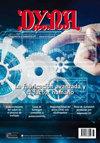DESIGN FOR SAFETY: A SEARCH FOR SYNERGIES
IF 0.7
4区 工程技术
Q3 ENGINEERING, MULTIDISCIPLINARY
引用次数: 0
Abstract
Design for safety is a branch of design that is based on identifying and fighting risks with the objective of increasing safety, well-being and health. Safety is a human right and it should be intrinsic to the entire design process. To ensure a correct evolution of design for safety, the development of new technologies that can offer efficient solutions to current problems must be taken into account. The aim of this work is to identify a series of synergies between design and safety in order to establish a common framework between these two areas and to develop new lines of research. To do this, we start with a mind map made with the collaboration of several safety professionals and researchers, from which we identify some of the main branches of design that already have a clear connection with safety or it could be further developed. Subsequently, the previous research related to each branch and their respective applications are analysed. The work concludes with the synthesis and representation of the results in a visual and easy-to-understand infographic, that compiles the identified synergies. These results offer valuable conclusions on the synergies between design and safety, helping to identify emerging applications and new trends. In addition, the bibliographic analysis provides insight into the most developed synergies in the academic field and those new ones that may represent a research niche. Keywords: Design for safety; Graphical tools; Safety science; Industrial design安全设计:寻求协同效应
安全设计是设计的一个分支,它以识别和消除风险为基础,以提高安全性、幸福感和健康为目标。安全是一项人权,它应成为整个设计过程的内在要素。为了确保安全设计的正确发展,必须考虑到新技术的发展,这些新技术可以为当前的问题提供有效的解决方案。这项工作的目的是确定设计与安全之间的一系列协同作用,以便在这两个领域之间建立一个共同的框架,并开发新的研究方向。为此,我们首先与几位安全专业人士和研究人员合作绘制了一张思维导图,从中确定了一些已经与安全有明确联系或可以进一步发展的主要设计分支。随后,我们分析了与每个分支相关的先前研究及其各自的应用。最后,我们以直观易懂的信息图形式对研究结果进行了综合和表述,并对已确定的协同作用进行了汇编。这些结果为设计与安全之间的协同作用提供了有价值的结论,有助于确定新兴应用和新趋势。此外,通过文献分析,还可以深入了解学术领域中最发达的协同作用,以及那些可能代表研究利基的新协同作用:安全设计;图形工具;安全科学;工业设计
本文章由计算机程序翻译,如有差异,请以英文原文为准。
求助全文
约1分钟内获得全文
求助全文
来源期刊

Dyna
工程技术-工程:综合
CiteScore
1.00
自引率
10.00%
发文量
131
审稿时长
6-12 weeks
期刊介绍:
Founded in 1926, DYNA is one of the journal of general engineering most influential and prestigious in the world, as it recognizes Clarivate Analytics.
Included in Science Citation Index Expanded, its impact factor is published every year in Journal Citations Reports (JCR).
It is the Official Body for Science and Technology of the Spanish Federation of Regional Associations of Engineers (FAIIE).
Scientific journal agreed with AEIM (Spanish Association of Mechanical Engineering)
In character Scientific-technical, it is the most appropriate way for communication between Multidisciplinary Engineers and for expressing their ideas and experience.
DYNA publishes 6 issues per year: January, March, May, July, September and November.
 求助内容:
求助内容: 应助结果提醒方式:
应助结果提醒方式:


